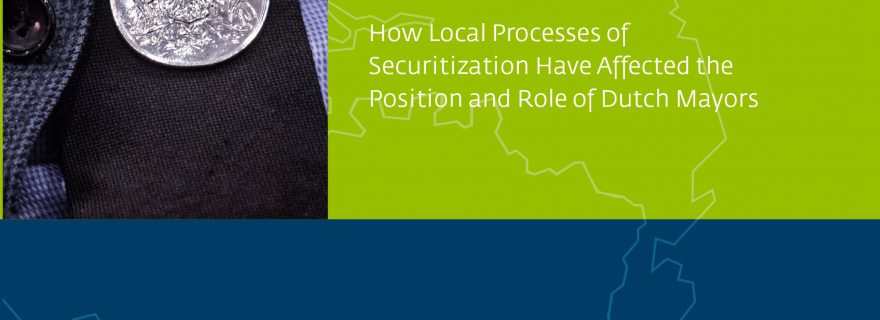Mayors put to the test. Dutch mayors in local security networks
The ever growing trend of securitizing local issues has fostered an expansion of Dutch mayor’s formal positions, as well as new actions and roles in daily governance.
Cities appear to be the main stages of contemporary security issues such as youngsters radicalizing in deprived neighborhoods, violent protests against refugees and mobile banditism. These unwanted phenomena present themselves in urban areas in the most direct way possible putting local administrators and politicians to the test. We have witnessed the mayor of Rotterdam (the Netherlands) being praised for communicating his personal stance on integration and fighting IS after both Paris Attacks in 2015 as well as the mayor of Cologne (Germany) being heavily criticized after advising women to keep men at arm's length after range of sexual attacks during new year’s eve.
A new book places such examples in historical perspective by combining research findings of national and local studies on the way in which Dutch mayors have tackled ‘new’ security threats between the years 1990 and 2010. In the Netherlands mayors have been responsible for ensuring local safety and order since the introduction of the first Local Government Act in 1851. Therefore, when a new security threat arises all eyes generally turn to them. And these threats sure did arise. The book demonstrates how many unwanted phenomena, ranging from litter on the streets to organised crime, have been defined as new and local security threats. As a result, the mayor’s traditional responsibility for local order now extends to a much wider variety of security issues including rioting, soccer games, radicalization, soft drugs, domestic violence and organized crime. The main argument of the book is that this ever growing trend of securitizing local issues has fostered an expansion of the mayor’s formal position, as well as new actions and roles in daily governance.
Over the last 20 years national government has introduced multiple formal powers for Dutch mayors to address new security issues. Examples include ordering preventive body searches for weapons, issuing temporary home restrictions in case of domestic violence, and mandating area restrictions because of the high risk of severe nuisance in public spaces. This expansion can be characterized as the largest shift in the mayor’s formal position in the past decades. Not all sections of Dutch society are happy with these developments. Many stakeholders claimed the mayor’s traditional role of shepherd would be overshadowed by his or her new role of local sheriff when these new and far reaching powers were implemented.
The book describes in depth case studies demonstrating that Dutch mayors did not become local sheriffs firing big guns at everything they do not like. Instead, mayors took on a leadership style that is best described as ‘super networker’ deploying a facilitative leadership style which is strongly focused on bringing it all together in terms of actors, resources and goals. Mayors manifested themselves as powerful and dependent players while tackling new security issues: powerful given their formal and exclusive powers; dependent because, in practice, these powers are counterbalanced by new dependencies between mayors and their many public and private partners united in local security networks (social workers, police, private security companies, housing corporations). The book concludes with a translation of research findings into multiple implications for the practice of local governance in general and for mayors in particular. These range from selecting a suitable leadership style to ways of framing contemporary security issues and making use of national powers in local societies.


